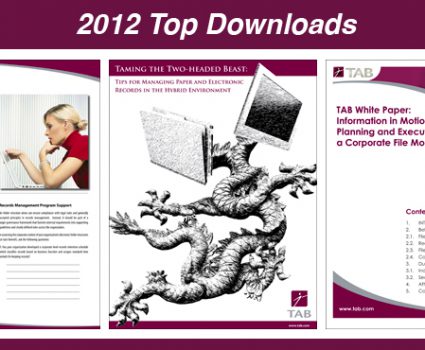
Unless printers become obsolete, eliminating paper from offices will continue to be a challenge. That means records managers will have to contend with the storage costs, extended retrieval times, and access concerns associated with these documents for some time yet. Even if you can’t go entirely paperless, you can put the processes in place to […]Read More






